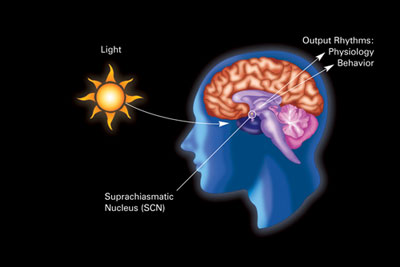07 Jul Circadian Rhythm
Circadian Rhythm And The Four Keys To Weight Loss – with Ari Whitten
In paragraphs below I am going to share 4 keys to weight loss in the views of Ari Whitten. Ari is the best selling author of Forever Fat Loss and the creator of cutting-edge program The Energy Blueprint. (By the way, he’s got an incredible FREE training on how to increase your energy levels. It’s a MUST WATCH for anyone who cares about being healthy, increase their energy or wants to lose fat. You can sign up for that 100% FREE Virtual Training HERE.)
*NOTE: Before reading on it is important to note that this article does not claim to be a treatment or cure for any disease. If you have a serious medical condition, see your doctor and take appropriate action.
GUEST POST By Ari Whitten. In Ari’s words…
Think Fat Loss is Just a Matter of “Eat Less and Exercise More”?
The Four Keys to Weight Loss – When I encounter someone who is having struggles with their body composition or their health/energy level, 99% of the time, I find that they have a case of diet and exercise myopia.
 They are myopically focused on analyzing their nutrition and their diet as THE source of all their problems. Most people think of their health and their fat loss results as a simple matter of “diet and exercise.”
They are myopically focused on analyzing their nutrition and their diet as THE source of all their problems. Most people think of their health and their fat loss results as a simple matter of “diet and exercise.”
And as a result, they almost always completely miss the real factors holding back their fat loss efforts!
Think losing weight is a simple matter of eating less and doing more exercise? Think again! You may be missing out on massively important things you must implement to lose weight.
People almost NEVER really look at their movement/sitting habits, their circadian rhythm-related habits, their stress/de-stressing habits, and their hormonal balance and metabolic health.
It’s not their fault!
We live in a world where almost all the health gurus out there themselves are caught up in this diet and exercise myopia.
As a result of this, people who are looking to lose fat typically fail because they only address diet and exercise, and they fail to address hugely important factors in their life like metabolic health, NEAT, and circadian rhythm.
Very frequently, perhaps in upwards of 85% of the cases that I deal with, the biggest factor holding people back from fat loss is NOT nutrition or exercise.
In fact, many of the people I work with have their nutrition and exercise routines dialed in pretty darn well! But they typically have one or more of those other factors that is COMPLETELY out of whack.
Ari mentions these important things you must implement to lose weight successfully:
- If nutrition isn’t dialed in, it will sabotage everything. And if you’re not exercising regularly, you’re missing out on a big contributor to successful weight loss. Everyone knows these are two of the most important things you must implement to lose weight, but there are others…
- If circadian rhythm is disrupted, it will throw off the appetite regulation center of your brain and slow down your metabolism–shifting the balance of calories in, calories out towards fat gain rather than fat loss.
- If you have low levels of thyroid hormone, your metabolism is going to slow down. If you have low thyroid hormone, fat loss becomes virtually impossible–no matter how much dieting or exercise you do.
- If you’re stressed out all the time, it will increase stress hormones like cortisol and adrenaline and suppress youth hormones (DHEA, progesterone, and thyroid hormone) which are all essential for a fast metabolism and fat loss.
- If you’re sitting for prolonged periods each day of more than 2 hours, multiple times a day, you’re going to cause insulin resistance, you’re going to erase most or all of the benefits of the workouts you’re doing, you’re going to get decreased mitochondria (the cellular energy generators), and your metabolism is going to slow down. (See the article and video HERE for more on this topic.)
So don’t fall prey to the “trendy” diet and exercise myopia!
Nutrition and exercise are just 2 of the factors when it comes to feeling and looking incredible. They are most definitely NOT everything.
To get stellar results in improving your health and putting your body into fat loss mode, you really must get ALL factors dialed in.
If fat loss is not happening for you, I can virtually guarantee you that at least ONE of these factors is completely out of whack.
I can also guarantee you that if your habits are dialed in on all of these factors, you WILL–virtually 100% of the time–begin to lose fat, improve your health, and increase your energy level dramatically.
When it comes to important things to implement for weight loss, circadian rhythm habits are just as important as nutrition, yet almost completely overlooked
This is a major factor for many people–as important as good nutrition–and it is almost completely overlooked by most people who want to achieve fat loss.
First of all, what is circadian rhythm?
Our circadian rhythm is a major that controls our physiology. In response to signals from the environment (mainly light), the circadian rhythm initiates all sorts of neurotransmitters and hormones that control our behaviors, appetite, mood, performance, and energy levels.
Like most animals, humans are wired into a 24-hour cycle that is tied to the rise and fall of the sun. During the daytime–when the sun is up and it’s light outside–our bodies hormonal systems and metabolic engines turn on and rev up.
Daytime is the time to be awake, energetic, and active.
When it gets dark, that signals our body to wind down, rest, recover, and sleep. This is a hugely complex set of physiological chain reactions that impact everything from brain function, energy levels, to your appetite (and food intake), to your hormone levels, to the function of your various organs, to your physical performance, to your emotional state and mood, to how fast your metabolism is.
So this is a big deal, and it affects pretty much everything about how we feel and how our bodies function.
Circadian rhythm is regulated in the brain (in particular, the biological “clock” that regulates our 24 hour sleep/wake cycle is in the suprachiasmatic nucleus in the hypothalamus).
It’s not critical that you remember the name of this specific part of the brain, but what is important is that you understand that circadian rhythm is regulated by the brain in response to environmental cues that tell it when it’s daytime and when it’s nighttime.
This is MORE than simply a matter of how many hours you sleep each night! The environmental factors that tell our brain when it’s day and when it’s night are very complex.
Everything from the time of day that you take in food, to the specific types of nutrients you consume, to the time of day you do exercise, and the type of exercise you do, to visual information you process (like other human faces), to how much you sleep and what time of day you sleep and wake up, to your psychological/emotional stress, to light exposure patterns (and even down to specific wavelengths of light) all have a dramatic impact on your circadian rhythm.  How Your Disrupted Circadian Rhythm (one of the Keys to Weight Loss ) is Making You Sick, Tired, and Fat
How Your Disrupted Circadian Rhythm (one of the Keys to Weight Loss ) is Making You Sick, Tired, and Fat
Disrupted circadian rhythm is a major HIDDEN reason that many people are in this situation. They may think energy balance (and thus, fat loss) is a simple matter of how many calories you eat and burn each day, but they fail to consider that the signals the circadian rhythm system of the body get have a MAJOR impact on the calories in, calories out equation.
In Wiley and Formby’s book Lights Out: Sleep, Sugar, and Survival, they make the case that disrupted circadian rhythm is a major contributor to most modern day degenerative diseases like obesity, diabetes, heart disease, and cancer—just as big of a contributor as what we eat and how we exercise.
Disrupted circadian rhythm has been shown to:
- Contribute to inflammatory diseases. (1) And keep in mind that the majority of degenerative diseases from Alzheimer’s to heart disease to depression to diabetes to cancer are now linked with inflammation.
- Dramatically weaken your immune system. “There was a graded association with average sleep duration: participants with less than 7 hours of sleep were 2.94 times (95% confidence interval [CI], 1.18-7.30) more likely to develop a cold than those with 8 hours or more of sleep. The association with sleep efficiency was also graded: participants with less than 92% efficiency were 5.50 times (95% CI, 2.08-14.48) more likely to develop a cold than those with 98% or more efficiency.” (2)
- Increases risk of cancer, metabolic syndrome and cardiovascular disease. (3) (4) (5) Studies indicate that even after adjustment for confounding factors, including age, gender, body mass index, current smoking status, hypertension, diabetes, dyslipidemia, sleep medication, estimated glomerular filtration rate, nocturia, bedtime, duration in bed (scotoperiod), day length (photoperiod), urinary 6-sulfatoxymelatonin excretion and daytime and nighttime physical activity, exposure to light at night is associated with carotid intima-media thickness. (6)
- Increase levels of stress hormones like cortisol. (7)
- Predispose to cancer, and accelerate tumor growth—tumors grow two to three times faster in laboratory animals with severe sleep dysfunctions. “In the new study, scientists grafted human breast cancer tumours on to rats and infused them with blood taken from women during the day, in the early hours of the morning, and after being exposed to light at night. The blood taken in darkness slowed the growth of the cancers by 80 per cent, but the blood taken after exposure to light accelerated it.”(8)
- Increase risk of psychiatric disorders and neurodegenerative diseases. “Disruption of sleep alters sleep–wake timing, destabilizes physiology and promotes a range of pathologies (from cognitive to metabolic defects) that are rarely considered to be associated with abnormal sleep. We propose that brain disorders and abnormal sleep have a common mechanistic origin and that many co-morbid pathologies that are found in brain disease arise from a destabilization of sleep mechanisms.” (9)
- Seriously impair your memory; even a single night of poor sleep can impact your ability to think clearly the next day and decrease your problem solving ability.(10)
- Worsen a long list of other diseases and disorders, including: Hypothyroidism (i.e. slow metabolism), heart disease, stomach ulcers, constipation, mood disorders like depression and anxiety.
- Accelerate the aging process. (12) (13)
- It has even been shown that people with chronic insomnia have a three times greater risk of dying from any cause. (14)
Here are just some of the symptoms commonly experienced when circadian rhythm is disrupted:
- Depression, despair, misery, guilt, anxiety
- Family / social problems – largely lacking compassion/empathy and feeling emotionally numb
- Behavioral problems – acting up is common in kids
- Sleep problems – sleeping a ton but still not feeling refreshed
- Physical symptoms – increased susceptibility to getting sick
- Fatigue – lacking physical vitality and energy and feeling lethargic

Are you doing what’s necessary to ensure a healthy circadian rhythm? A huge body of scientific research now indicates that it’s one of the most important things to do to ensure your health, be energetic, and maintain a lean body.
Several studies have now linked disrupted circadian rhythm with fat gain.
Circadian rhythm is a huge factor, and if yours is disrupted (as most people’s circadian rhythm is!), you’re going to have trouble losing fat no matter how good your diet and exercise are.
But you might be wondering how circadian rhythm relates to fat gain, since fat gain and fat loss ultimately come down to “calories in, calories out.”
Fat gain therefore, must be driven by an over consumption of calories relative to how many are being burned—thus, circadian rhythm would have to affect the calories in-calories out equation in some way.
It turns out that disrupted circadian rhythm actually affects BOTH! When circadian rhythm is disrupted (and again, MOST people do have chronically disrupted circadian rhythm), here’s what happens:
-
The metabolism slows down, and you create metabolic dysfunction.

(Experiments in rats have shown that their metabolisms go haywire with as little as one day of disrupted circadian rhythm. And experiments in humans show very similar effects).
-
It disrupts the appetite regulation center of the brain, and causes you to unconsciously eat more, and specifically to seek out highly processed foods dense in sugars and fats.
(We know that this is a major factor that prevents people from sticking to eating the foods they already know they should be eating).
So even when you’re eating a clean diet and exercising regularly, if your circadian rhythm is disrupted, it will cause the above two effects and still push your physiology into fat storage mode.
What Disrupts Circadian Rhythm?
 As it turns out, our modern world just so happens to be built perfectly for throwing off the physiological systems that regulate our circadian rhythm.
As it turns out, our modern world just so happens to be built perfectly for throwing off the physiological systems that regulate our circadian rhythm.
The major factor that disrupts the circadian rhythm is abnormal light rhythms. Remember, our brain and metabolic function have evolved to adjust themselves to the rise and fall of the sun–and it was mainly the presence of the sun (light) or not (darkness) that let our brains know when it was daytime and when it was nighttime.
Then artificial light came onto the scene and threw a giant monkey wrench into the whole system. While electricity and efficient lighting have clearly provided major benefits to society, these benefits come with a price: the betrayal of your inner clock.
To be more specific, when it comes to light exposure, there are basically two light-related problems that disrupt circadian rhythm:
-
Deficiency in sunlight exposure during daylight hours.
We need sunlight for numerous reasons, like making vitamin D (from the sun’s UV rays), stimulation of cellular energy production (largely from light in the red wavelengths), and melatonin suppression (from light in the blue wavelengths).
Sunlight is bioactive! It affects numerous aspects of our physiology and is an essential requirement for health. The deficiency of red and UV wavelengths can result in deficient cellular energy production and the problems associated with low vitamin D, but as sleep and circadian rhythm are concerned, the big problem is blue light.
Blue light wavelengths are the primary light wavelengths that the circadian clock is wired to respond to. Specifically, when we do not get ample and intense blue light exposure during the day (for example, if we spend all day indoors, as many of us do), we do not get enough of the stimulus that tells our brains “this is daytime, the time to be awake” and melatonin (the hormone that should be suppressed during daylight hours) is not adequately suppressed.

-
Too much blue light after the sun goes down.
Artificial light sources, like TVs, cell phones, and computer screens, emit light in the blue light spectrum, which enters our eyes and feeds back into the brain where it tells the brain “it’s daytime,” and as a result, melatonin is suppressed.
This is a good thing during the middle of the day, but a pretty terrible thing when we have lots of blue light entering our eyes after sunset. Normally, when darkness arrives after the sun goes down, melatonin goes up, and we get tired and ready for sleep, as our ancestors had done for hundreds of thousands of years prior to the invention of electricity. Due to modern artificial light sources, however, we have blue light pouring into our eyes for hours after sunset, and this completely throws off our circadian clock.
So what’s the end result of circadian rhythm disruption?
- Our body doesn’t get an adequate signal of what is day and what is night, and we end up lacking energy when we should have it (during the day) and too awake when we shouldn’t be (at night).
- We become fatigued
- Our metabolism slows down.
- Our brain’s appetite regulation center begins to malfunction.
Over time, this combination damages our health, kills our energy levels, and creates subtle changes in the calories in-calories out equation that drive fat gain and hinder fat loss.
To put it simply: Circadian rhythm is a MASSIVE factor in your health, your overall physical energy/vitality, and your fat loss results.
How You Can Start Fixing Your Circadian Rhythm To Increase Your Energy and Get Leaner
The most important first step of fixing your circadian rhythm is to eliminate blue light exposure after sunset. Why blue light? Remember that it’s the blue spectrum that’s responsible for melatonin suppression (i.e. for disrupting your circadian rhythm by telling your brain “it’s daytime”).
How can you eliminate your exposure to blue light after sunset?
- First, install free f.lux software HERE on your computer and smart phone. It automatically adjusts the blue light output of your screen after sunset. This will almost completely eliminate the blue spectrum of light on the screens of those devices.
- Alternatively, you can use blue light blocking screens on your computer and phone, which actually block blue light even more effectively than f.lux, and they work for your TV as well, which f.lux doesn’t.
For computer screens
For phones - Another alternative–and one that I personally use–is blue-blocking sunglasses, which will effectively eliminate all light in the blue spectrum from entering your eyes from room lighting as well as electronic screens. (See the recommended products page on my website HERE)The only downside with these is that it does require that you wear goofy sunglasses around your house at night. The plus is that you can work on your computer, play on your phone, or watch TV as much as you want without disrupting your circadian rhythm.If you prefer not to do that, then you want to get the blue-blocking screens for your phone, computer, and TV if you plan on using those devices after sunset.
If you have are dealing with chronic fatigue and a body that’s resistant to fat loss despite eating and exercising well, you now know a major factor that is a major source of these problems.
Are you ready to take your body and energy to the next level?
Ari has put together what may just be the most advanced and cutting-edge, science-packed health program in the world. It’s called The Energy Blueprint and people are absolutely raving about it. He offers an amazing “Overcome Fatigue and Double Your Energy” FREE Virtual Training course that is a MUST WATCH for anyone who cares about their health and wants more energy. You can sign up for that HERE.
___________________________
If you’re looking to improve your body and your energy levels, make sure to sign up for Ari’s incredible FREE “Double Your Energy” Video Training course HERE.
References:
[1] http://www.medicalnewstoday.com/articles/277213.php
[2] http://www.ncbi.nlm.nih.gov/pubmed/19139325
[3] http://www.qscience.com/doi/pdf/10.5339/jlghs.2013.3
[4] http://www.febsletters.org/article/S0014-5793(07)00843-5/abstract
[5] http://circres.ahajournals.org/content/106/3/447.full
[6] http://www.researchgate.net/publication/267746962_Light_exposure_at_night_is_associated_with_subclinical_carotid_atherosclerosis_in_the_general_elderly_population_The_HEIJO-KYO_cohort
[7] http://www.medscape.org/viewarticle/502825
[8] http://www.independent.co.uk/news/war-in-the-balkans-fuel-supplies–nato-allies-divided-over-oil-embargo-1090208.html
[9] http://www.ncbi.nlm.nih.gov/pubmed/20631712
[10] http://www.ncbi.nlm.nih.gov/pubmed/1620796
[12] http://www.sciencedaily.com/releases/2013/07/130723155002.htm
[13] http://www.ncbi.nlm.nih.gov/pubmed/10543671
[14] http://www.sciencedaily.com/releases/2010/06/100607065559.htm

